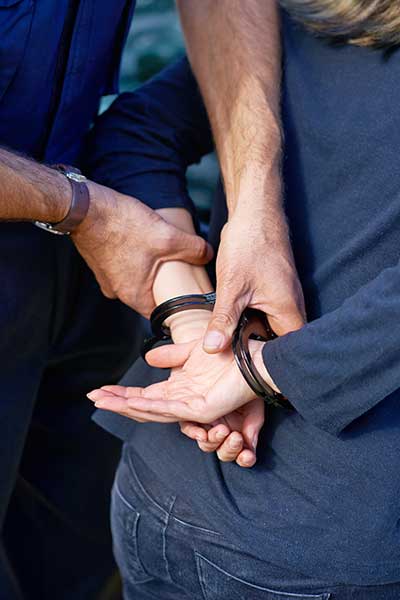The Federal Bail Reform Act of 1984 permits Federal courts to require financial options to defendants. This is often referred to as “bail”. There is a process to agree to pay these bail amounts and appear at court which is referred to as a bail bond. While this process isn’t commonly used anymore, it is still an option across the United States – more specifically, in Florida. Our criminal law office dives deeper into bail bonds below and how they work.
What Are Bail Bonds?
A bail bond is essentially a financial agreement made on behalf of the defendant by a bail bond agent or bail bondsman. Furthermore, this agreement guarantees the court that the defendant will appear for their scheduled court dates. Bail bonds are a form of surety bond, which involves three parties: the principal (the accused), the obligee (the court), and the surety (the bail bond agent who provides the bond).
In the context of criminal justice, when someone is arrested, the court often sets a bail amount during the first appearance hearing. Bail is not a punishment but rather a security measure to ensure the defendant’s return to court without the need to remain in custody.
How Do Bail Bonds Work?
The bail bond process begins when a court sets a bail amount for a defendant’s release pending trial. If the defendant cannot afford the full bail amount, they can opt for a bail bond service. Our criminal law office has provided a simplified overview of the process below:
- Contacting a Bail Bond Agent. The defendant, or their representative, contacts a licensed bail bond agent in Florida.
- Paying the Bail Bond Fee. The defendant pays a non-refundable premium to the bail bondsman. Typically, this is 10% of the total bail amount, as mandated by Florida law.
- Securing the Bail Bond. The bail bondsman then posts the full bail amount to the court. This guarantees that the defendant will attend all court proceedings.
- Release from Custody. Upon the bail bond’s acceptance, the defendant is released from jail, under the condition that they will return for all court hearings.
- Completion of Court Proceedings. If the defendant attends all court dates, the bail bond is dissolved at the conclusion of the legal process. Additionally, the secured bond is returned to the bail bondsman. However, if the defendant fails to appear, the bond is forfeited. Also, the bail bondsman may seek reimbursement from the defendant or the co-signer who secured the bond.
Importance of Bail Bonds
Bail bonds are important to the criminal justice system. They allow defendants, who might otherwise remain in jail due to financial constraints, to continue their daily lives while awaiting trial. This process also allows the court system to obey the innocent until proven guilty mindset our country follows by enabling individuals to work, care for their families, and consult with their defense attorneys until their trial.
Additionally, bail bonds provide a financial incentive for defendants to return to court. Failure to appear can result in financial loss for the defendant or their co-signers, and possible arrest or additional charges.
Criminal Law Office in Jacksonville, FL
If you or someone you know is presented with bail, discuss your criminal case with our team of experts. We can help review your charges, talk through the legal process, and discuss options on how to best handle your case. Contact our legal team 24/7 at 904-355-6777.